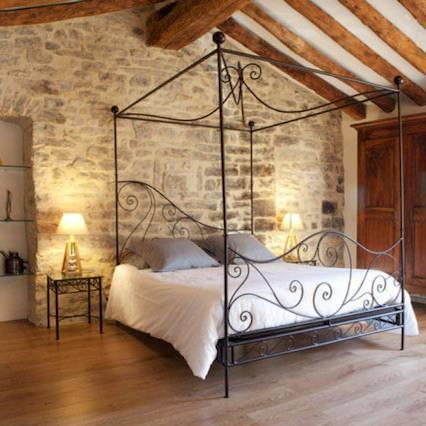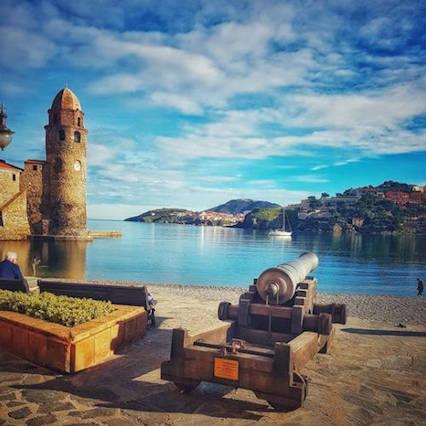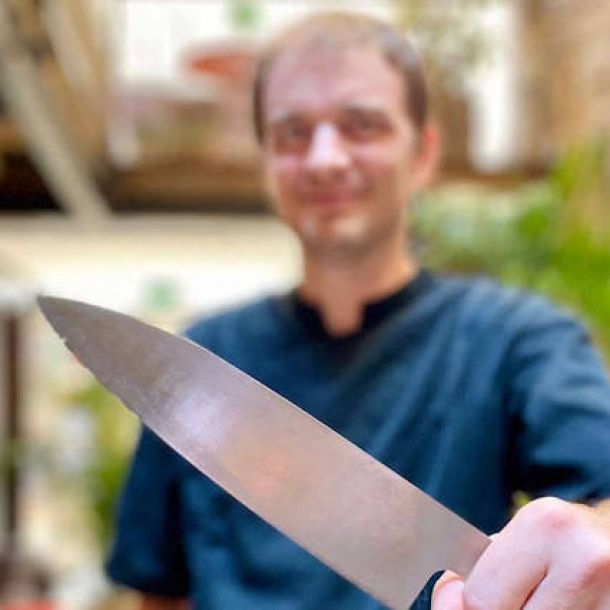- Last updated on .
- Hits: 9020
Gordes Provence France: Most beautiful small town in the World to visit
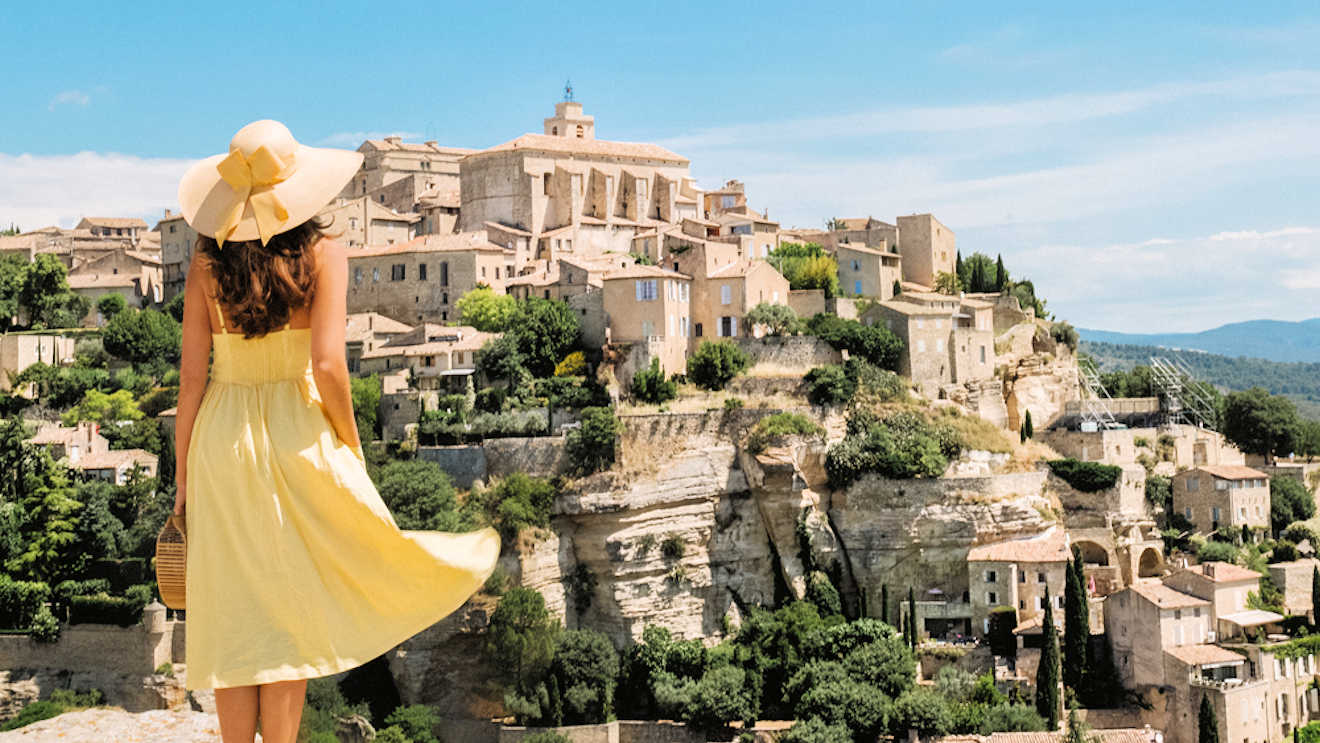 Gordes, Provence France [Photo courtesy of https://www.instagram.com/rosielondoner/]
Gordes, Provence France [Photo courtesy of https://www.instagram.com/rosielondoner/]
The small village of Gordes in Provence, France, has recently been voted the Most Beautiful Small Town in the World, beating rival villages such as Portofino in Italy, Oia in Greece, Giethoorn in the Netherlands, Shirakawa-gō in Japan, Ban Rak Thai in Thailand, Grindelwald in Switzerland and Stepantsminda in Georgia. Gordes is perched on top of a cliff above the Calavon valley and is one of the most charming Provence towns to visit in 2024. The village is located in the middle of the Luberon National Park, 40 kms east of Avignon and 100km north of Marseille in Southern France. Gordes is also the location of the World famous Abbaye Notre-Dame de Sénanque - or Lavender Abbey - which is perhaps the most photographed monastery in Europe. The photo of the purple lavender fields stretching out in front of the 12th Century Abbey, adorns all the guide books to Provence.
Gordes has been Inhabited since Roman times and is a delightful place to spend time in. The Mediterranean climate and relaxed pace of life create the perfect vacation environment. It is quite easy to spend the whole day doing nothing much: wandering the winding streets, leisurely taking coffee at a café and watching the world slowly go by, spending hours over a good meal in one of the many restaurants and watching the spectacular sunsets over the lavender fields in the valley below.
If you are planning a trip to Provence during 2024, then Gordes has to be top of your list of Provence towns and villages to visit. The best time to visit is in early or late summer and you must plan to be in Gordes during the early evening to catch the sunset. But the outward beauty of Gordes also hides a dark period of recent history.
Gordes Provence France: most beautiful village in the World
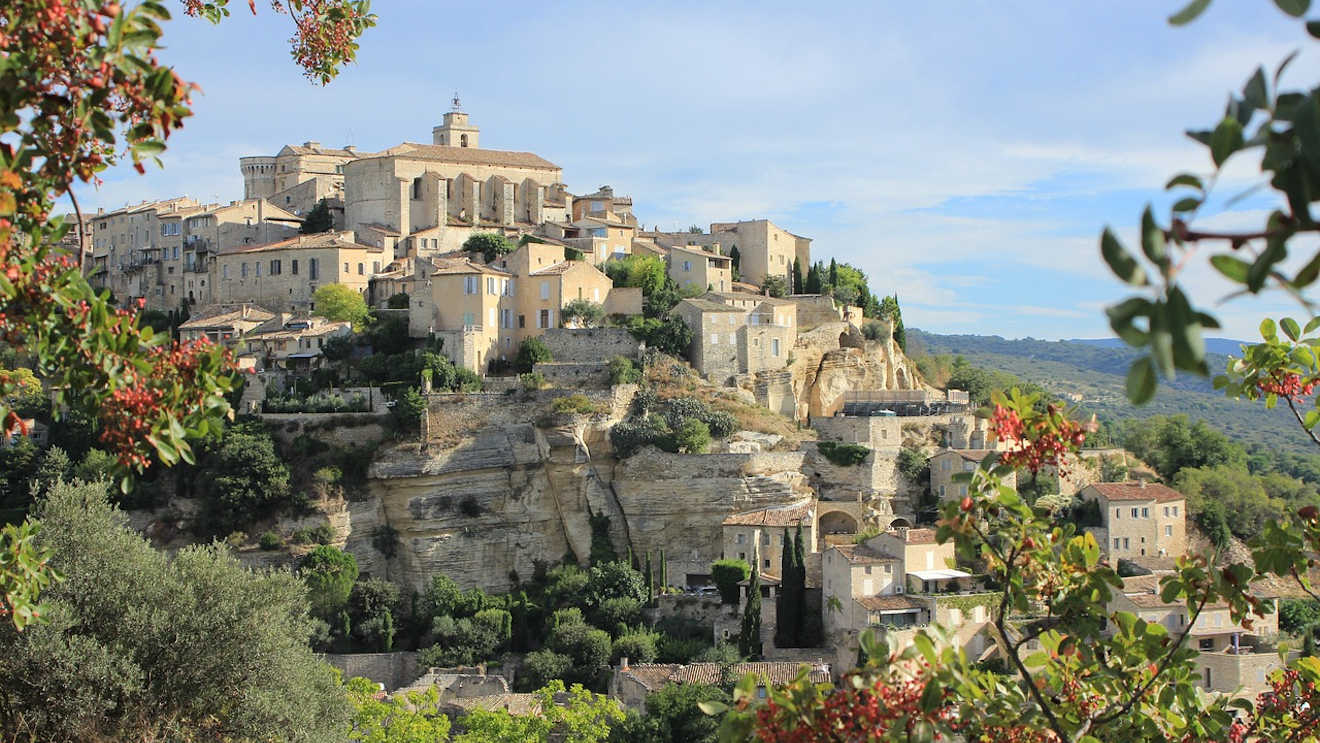
During 2023, Gordes was voted Number one in a survey of the Most beautiful Small Towns around the World by the American travel magazine, Travel + Leisure. This influential magazine was first published in 1937 and has a global readership of 4.8 million people. Every year, the magazine runs its World's Best Awards, an annual reader survey rating everything from airports, cities, cruise ships, hotels, beach resorts and best places to visit. In 2023, Gordes in Provence beat off competition from villages in Japan, Greece, the Netherlands, Thailand, Switzerland, Meico, Canada and USA, to claim top spot amongst the votes from the magazine's readers.
Travel+Leisure described Gordes as follows:
" . . . Perched high on a cliff above the valley, it’s a must-see destination with cobbled lanes, churches, and a monastery punctuated by lavender fields that look like they've been plucked from the pages of a storybook . . ."
[SOURCE: Travel + Leisure 23 Most Beautiful Small Towns Around the World 2023]
Provence towns to visit: Gordes history
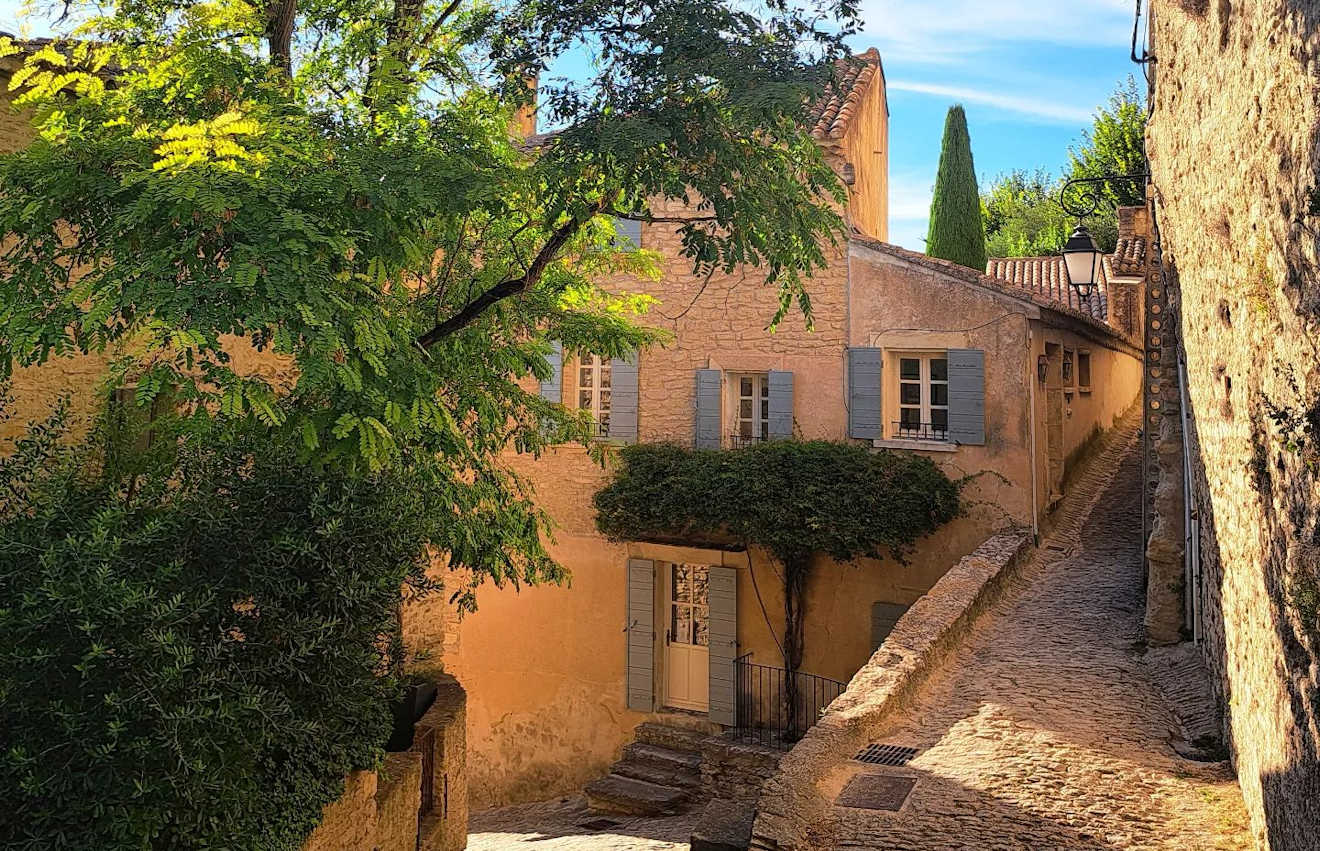
Gordes has a modern day population of around 1800 people, although at the end of the 18th Century the village was twice the size, with many people attracted by work at the nearby Ochre mines in the neighbouring village of Roussillon.
Gordes in Provence, France was first settled during the Roman empire, although there is some evidence that a settlement could have existed prior to this. In the 8th century, a Benedictine abbey known as Saint-Chaffret was founded by monks on the site of an ancient cella (Roman temple). However, this abbey was destroyed during the Arab invasions.
Gordes' castle was built in 1031 and a hundred years later, a Cistercian abbey was also added to the site. The castle was later rebuilt and enlarged in 1525 and today it still stands dominant over the village. The local market is held around the walls of the castle every Tuesday morning.
Gordes was eventually incorporated into France in 1481 (previously it had been part of the County of Provence) and the local residents remained fiercely loyal to Provence and there were many incidents of insurrection against the French state.
During World War II, Gordes was an active resistance village and was later awarded a medal, the Croix de Guerre 1939–1945. One particularly memorable event occured on 21 August 1944, almost a week after the Invasion of Southern France by the Allied forces (Operation Dragoon). A German patrol was attacked by the resistance forces from the village. However a the day after, the village was subject to violent reprisals. The Germans forced the inhabitants to leave their homes, shooting those who did not cooperate. The Germans then started to fire cannon shots at the village, destroying a dozen houses. After the Liberation the village was slowly reconstructed and it also began to attract famous artists like Marc Chagall, who first came to Gordes in 1947 and then later was joined by his friends Jean Dewasne, Serge Poliakoff, and Victor Vasarely.
What to do and see in Gordes Provence
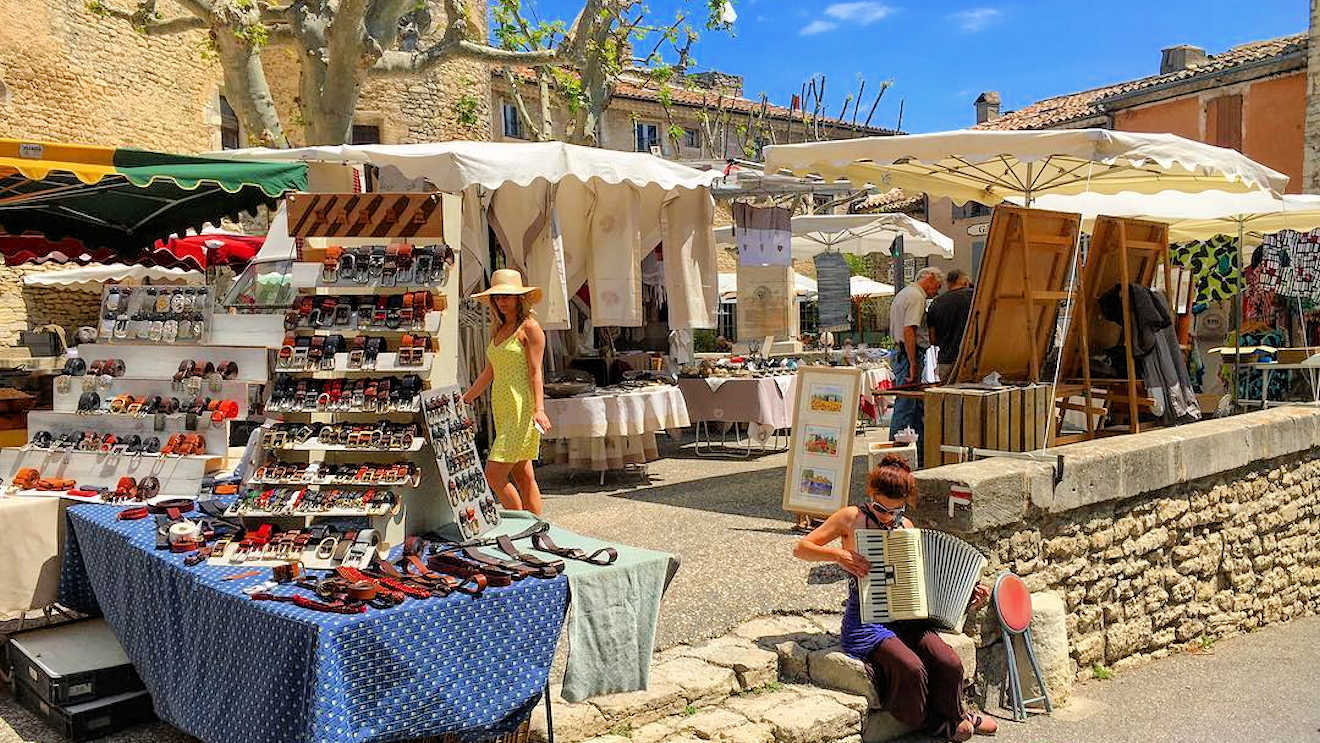
If you ask me what is there to see in Gordes, the in truth, the answer is that there is not an awful lot of things to see or visit. But in a sense, the question is framed wrong. The essence of Gordes, is not about seeing things or doing things, it is just about being their and soaking it all in. As you walk around the streets, you just need to soak up all of that history. You are going to be walking on tiny narrow streets that people have trodden on for at least 800 years, if not longer. And if you are ever going to pick up the real vibe of Provence, it is not really about doing something, it is about doing nothing.
I often get asked by customers about visiting Provence and I say to them that compared to the nearby Languedoc region, there is not really an awful lot to do or see. In the Languedoc, I could quite easily rattle off about 20-30 amazing places to visit. But Provence is different. I would struggle to come up with 10 sites to see in Provence. Provence is about being lazy and doing nothing, or if you do something - like visit a market or have a great lunch - then do it very slowly.
The Renaissance style castle in the centre of Gordes is certainly worth a wander around. You can certainly get a nice view from the parapets over the Provence countryside. Also, the Caves of Saint Firmin deep under the village, show the excavated remains of medieval village built into the rock, with a preserved olive oil press and large carved pits for storing wine and olive oils.
There is a great weekly market in Gordes, held every Tuesday. If you are just in Provence for a short time, then I would definitely plan your trip around it, because you can get to see a local French market in a truly breath taking setting. But if you are in Provence for longer, then you will find much cheaper markets to visit, with a better range of local produce. The Gordes market however, does what everyone wants and that is provide visitors with a slice of Provence to take home with them
Where is Gordes France?
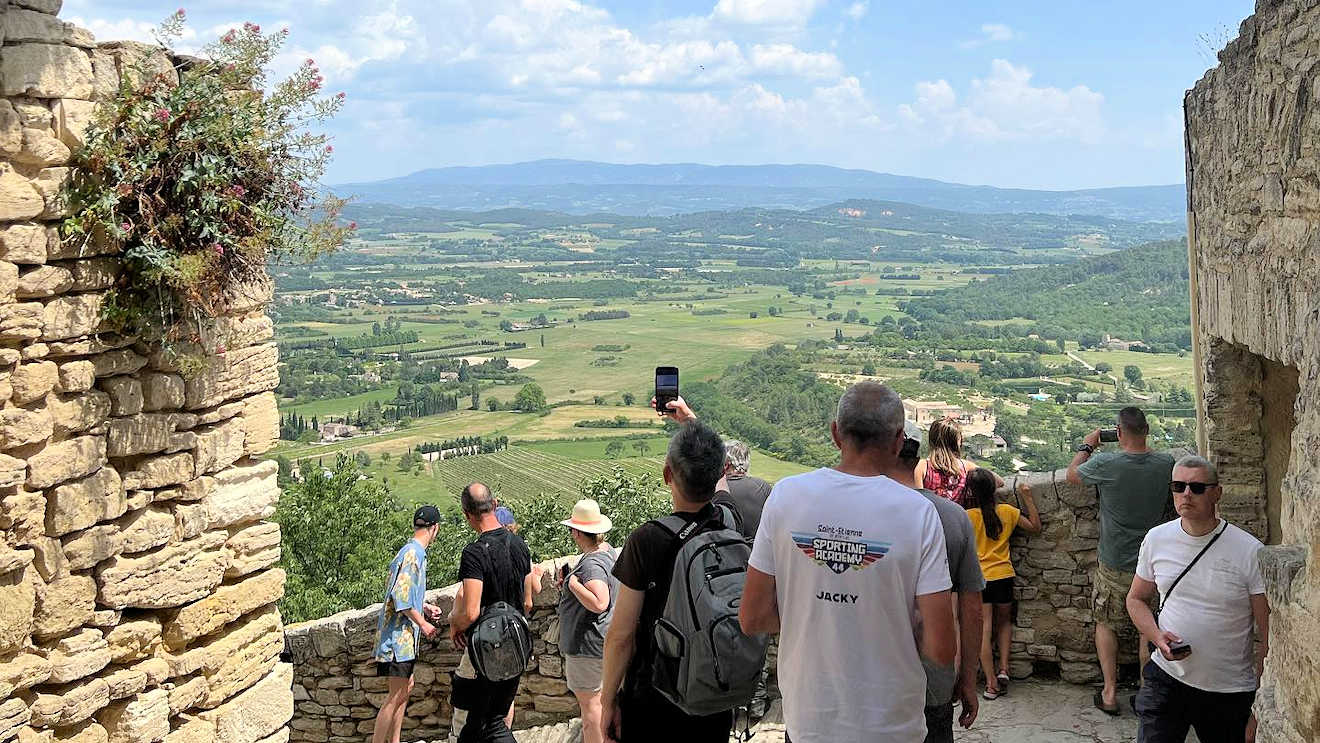
Gordes in Provence, France, is located on the D2 road east of Avignon (40 kms) and just west of the town of Roussillon. Other nearby towns include L'Isle sur Sorgue, Apt and Cavaillon. Marseille is 80 kms to the South.
The closest train stations are located in L'Isle-sur-la-Sorgue and Cavaillon, where you can pick up a regional train service to the TGV stations at Avignon and Marseille.
The nearest airport is located in Marseille (Marseille Provence international airport). Gordes is easy to navigate around, although you maybe best to park your car in the car park just below the village.
Weather in Gordes Provence, France
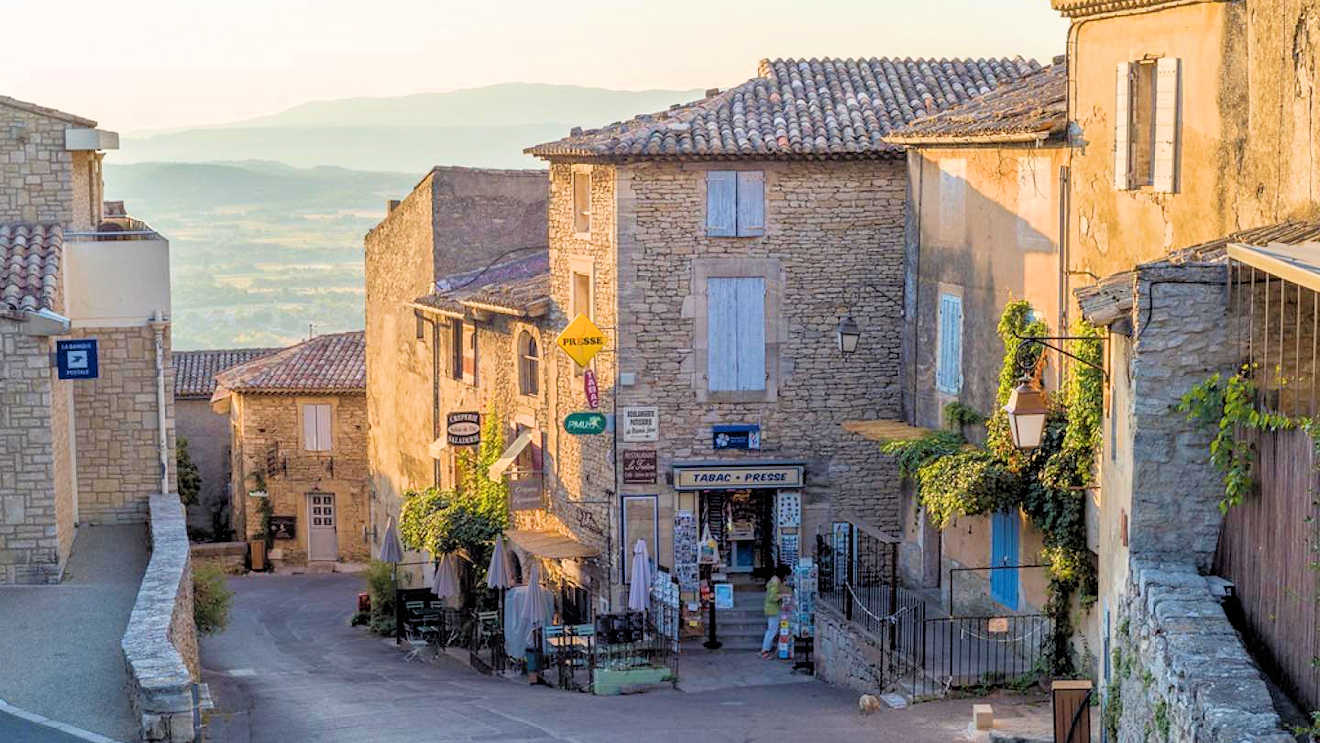 An early summer's morning in Gordes, Provence
An early summer's morning in Gordes, Provence
The weather in Gordes Provence is typically Mediterranean, with long dry summers and mild winters. Gordes in Provence is often subject to quite windy weather owing to is proximity to the path of the Mistral, a strong, and cold wind that blows down the Rhone valley in Southern France into the Gulf of Lion in the northern Mediterranean. The average speed of the Mistral during is about fifty kilometres an hour, but it tends to die off at night. The mistral usually blows in winter or spring and frequently lasts several days.
In summer, the weather in Gordes, Provence, is very pleasant, with the average day time temperatures reaching 24°C (75°F) and there is very little rain. The coldest is January, with an average day time temperature of 7°C (45°F), although the wind-chill factor can often make it feel much cooler. The wettest month is October with an average of 94mm of rain.
Gordes restaurants, Provence
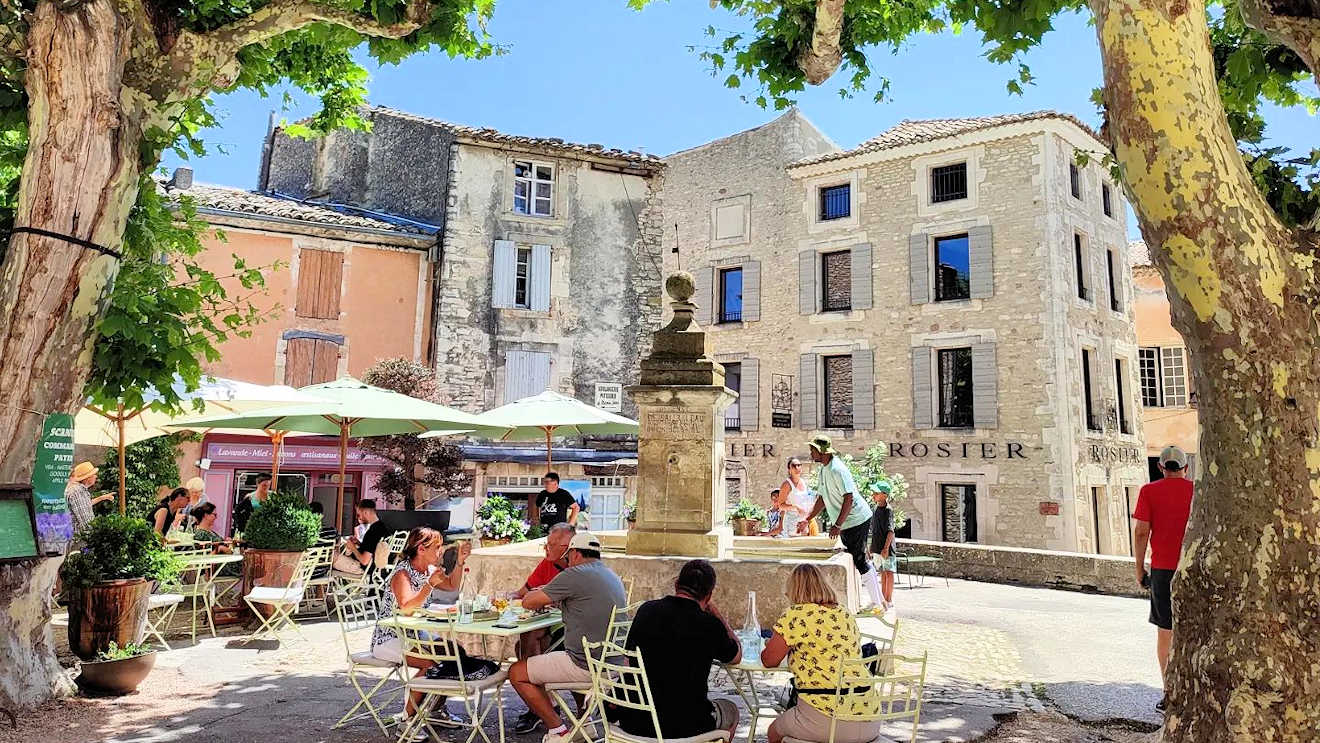
There are a number of good restaurants in Gordes to choice from. The one Gordes restaurant I have eaten at is La Bastide de Gordes, a hotel and spa complex located just to the north of the town. We stayed here on our 10th wedding anniversary and at the time the restaurant had a Michelin star. I have to say that the food was excellent, but bloody expensive. The views from the terrace over the valley are amazing and I still have dreams about the cheese trolley.
Other good restaurants in Gordes to try include Le Gordes-Manger, a small restaurant off the main square run by a local couple. It features authentic French cooking and home made deserts. Another option is L'Artegal, located in the main square next to the castle. this is great for summer evenings where you can dine outside under the stars. If you are looking for an in-expensive meal then try Le Loup Blanc. This is a small restaurant with about 20 covers. The inside has a curved ceiling (probably from the times when the building was used to store wine of horses). It is probably better to sit outside, if you can get a table.
La Fleur de Sel in nearby Beaumettes is often ranked as one of the best restaurants in Provence. It is not too expensive and specialises in Provencal cooking using local fresh ingredients.
Abbaye Notre-Dame de Sénanque: famous Provence lavender fields
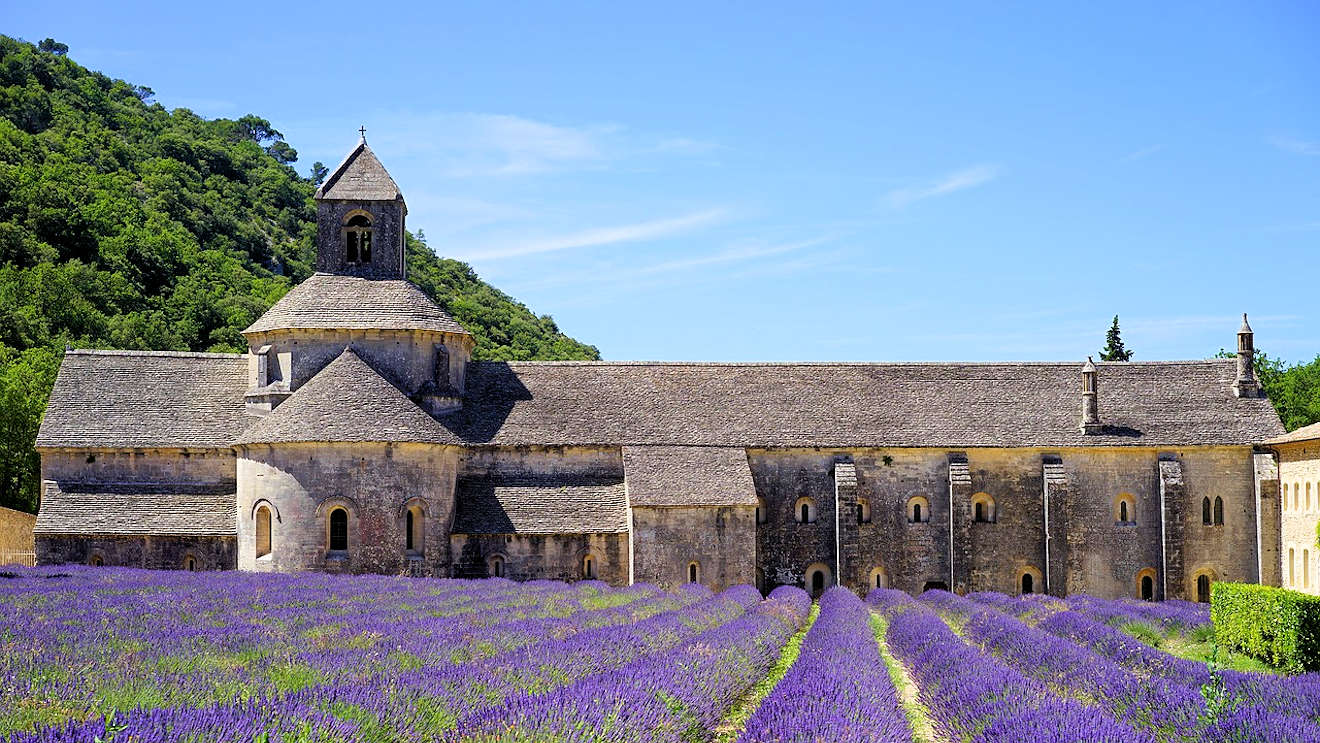
Close to Gordes is the famous Abbaye Notre-Dame de Sénanque, perhaps the most photographed Monastery in the World. The photo of the lavender fields in front of this beautiful Abbey, is plastered on every guide book to Provence and instantly recognisable.
The Abbey dates back to 1148 and the first buildings on the sight were consecrated in 1178. Just to put this into historical context and get you head around just how old the Abbey, this was also the same year that the Second Crusade to the Holy Land was launched, England was still under the control of the Normans, Ghengis Khan was not yet born, Spain was a collection of 5 provinces (one controlled by the Moors) and the Byzantine Empire was still in full swing.
The Abbey was controlled by the Cistercian monks (or Trappists) who followed a strict regime of rising at 03.00am every day, followed by manual labour in the fields and then a mandatory period of monastic silence from 20.00 every evening. During the 13th & 14th Centuries, the Abbey operated four flour mills and owned large estates throughout Provence. During the Wars of Religion (1562–98) the abbey was ransacked by the Protestant Huguenots and a lot of the monks were expelled. Later, after the French Revolution, the Abbey was nationalized and the one remaining monk was expelled. The Abbey building was later sold to a private individual, before being repurchased by a new community of Cistercian monks in 1854.
The current monks who live at Sénanque grow lavender and tend honey bees for to generate money for the Abbey.
Abbey-Sénanque is open every day for visitors from 10.00 to 17.00, except Sunday when it is open from 13.45 to 17.00. The Abbey is located just to the north of the village of Gordes.
The Ocre Mines Provence
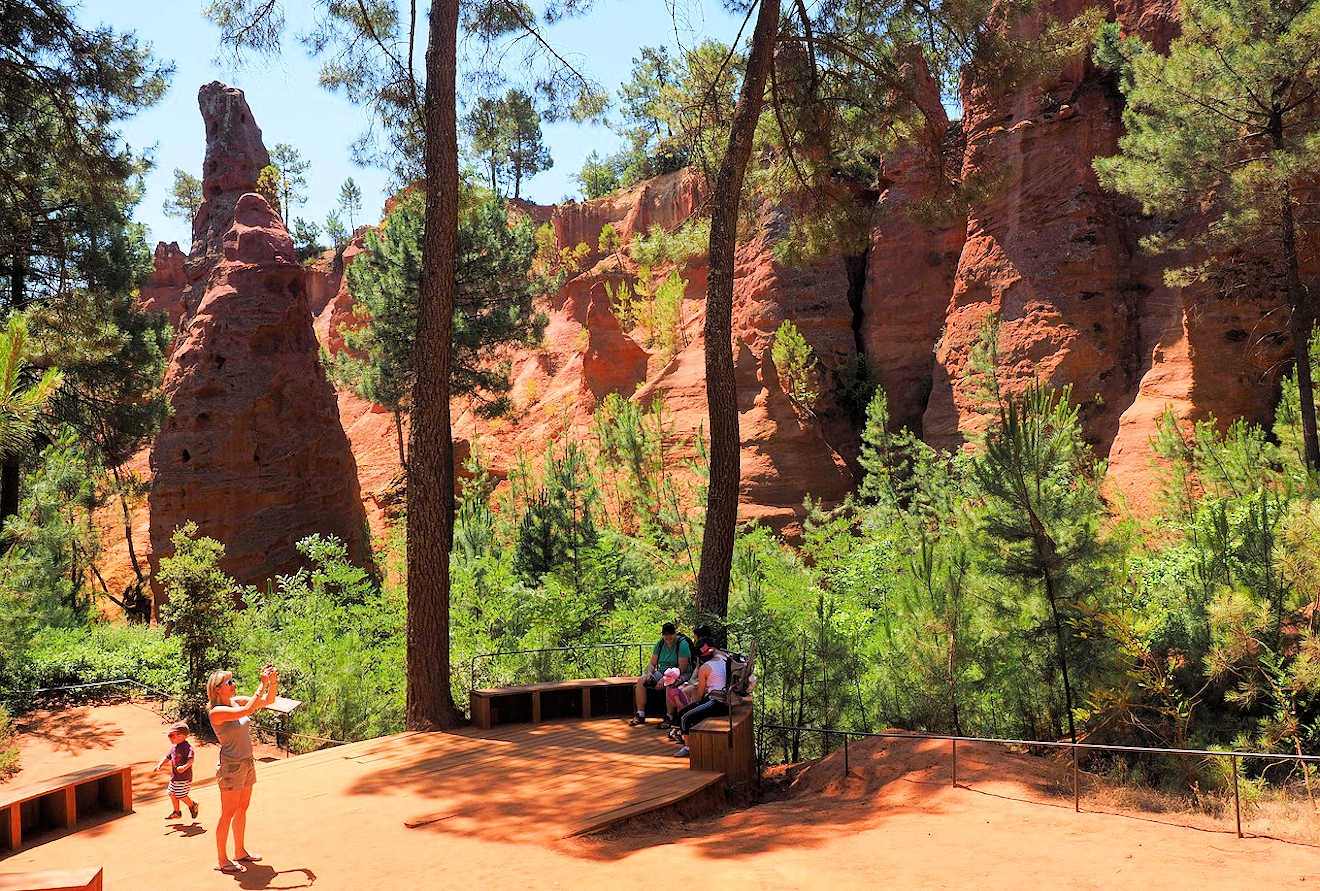 Massif des Ochres du Luberon: Roussillon ocre mines
Massif des Ochres du Luberon: Roussillon ocre mines
Near to Gordes, you will also find one of the strangest geological sites in France to visit. The Sentier des Ocres is the site of a former Ochre mine, close to the village of Roussillon. Over thousands of years, the rocks have been carved away by erosion and later by mining activity during the 18th Century. The result today is a set of beautiful red cliffs, which are perfectly framed by the green pine trees and the clear blue Provence sky. The Ochre mines employed thousands of local people and continued operation up until 1930, when the last commercial mine closed. Today it is forbidden to dig on the site, to protect the cliffs from further erosion.
Ochre is a natural clay pigment which often varies in colour from yellow to a deep burnt orange. Since pre-historic times, Ochre has been used as a colour pigment for cave paintings, body painting and wall paints. In recent times, a local Scientist from the village of Roussillon, Jean-Étienne Astier, was the inventor of the first industrial process for making ochre pigment. He came up with a process to wash the raw clay to separate the particles of ochre from the sand grains. The high quality ochre residue was then dried and cut into bricks and sold for making paints and artists' oil colours.
Where to next . . . ?
If you are looking to visit the South of France during 2024, then the wonderful Provence region is an ideal base for a holiday. The climate is superb, with hot summers and a long, warm Spring and Autumn. There are 9 airports across the South of France, an excellent highway network and the amazing TGV high speed train services, which mean that you can easily reach Provence from Paris in 4 hours. With stunning cities such as Avignon, Aix-en-Provence, St-Remy-de-Provence and Marseille, you will never be short of places to visit and things to do. But how do you narrow down your wish list and where are you best to stay in Provence. These articles should help you to figure that out:
If you are planning a trip to Provence during 2024, we have compiled a guide to the best hilltop villages and towns to visit and where to stay in Provence, France.
|
Go Languedoc provides high quality holiday accommodation across the South of France. Check out these 9 stunning Provence holiday villas & cottages to rent in 2024.
|
The South of France covers a vast area. We have grouped the best places to stay in South of France in 2024 into 10 distinct regions of the Southern France.
|
If you are planning a trip to France during 2024 and you are looking for ideas about the best South of France cities to visit on your tour, then we have compiled a guide to the 20 Best South France cities to visit.
|
Contact Iain by Email if you have any particular questions you would like to ask about visiting the South of France. If you liked the article then please share it with others using the Twitter and Facebook buttons below. I wish you a wonderful stay in the South of France.





